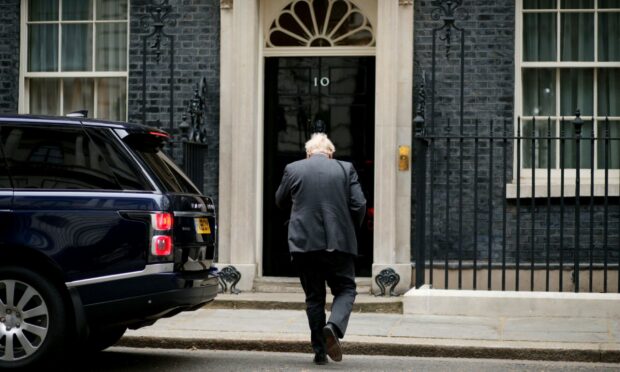Sir, – I used to believe that governments elected by democratic means had been voted in by the people in order to govern the country for the benefit of its inhabitants.
Parliamentary time of late, both at Westminster and at Holyrood, seems to be centred on trivia like “should we have one party or two attempting to boost the vote on possible independence” and “who should pay for the wallpaper and the decoration of a flat in 10 Downing Street ?”
Let’s get back to what really matters.
Let’s discuss openly whether the speed of vaccination in the various parts of the UK is as swift as it might be.
Let us discuss how soon businesses can get back to functioning again and re-employing those who have been laid off for so long.
Let’s stop the petty arguing and back-biting of those parliamentarians and get them to do what we, the taxpayers, pay them to do, which is to run the country successfully on our behalf.
Archibald A. Lawrie .
Church Wynd, Kingskettle.
UK needs Scotland and vice versa
Sir, – The UK’s strength lies in the union of the four nations within it and how the people of Scotland vote on May 6 will have implications far beyond their own borders.
Should the nationalists gain a majority, the possibility of a further referendum on independence is very real.
Let’s consider the gravity of the defence of the UK without Scotland.
The RAF bases on the Moray Firth protecting UK airspace, the Royal Navy Nuclear Deterrent base in the Clyde along with the British Army bases in Scotland are a very reassuring presence.
A Scotland breakaway from the UK would potentially remove these. Not only would Scotland be weakened without UK defence, leaving opposed nations access to the North Sea, but would leave the UK considerably weakened with loss of control of its borders.
The UK needs Scotland….and Scotland needs the UK.
John McCroft.
Derby, England.
Billions wasted on UK sabre rattling
Sir, – Correspondent Robert Paterson (How could Scotland defend itself?, Courier, April 27) ) puts the fear of a Russian invasion into minds.
Why on earth would Russia want to invade Scotland?
Furthermore, if Scotland were to be invaded by Russia once independent, just how happy do you think England would be with a large Russia force on it’s doorstep?
It is important that people look at the larger picture.
In the whole world, there are nine countries with a nuclear capability and not all have nuclear missiles.
Are all the other 200 and more countries of the world sitting in trepidation?
The billions the UK government have made from North Sea oil has largely been wasted on Trident missiles so the UK can sabre rattle. Madness.
The earth gets ever smaller and there are greater things to worry about than nuclear war. Coronavirus, global warming, pollution of the seas etc: are all things to spend billions on, not nuclear weapons.
Robert Donald.
Denhead Farm, Ceres.
Shedding light on hidden costs
Sir, – Paul Knight (letters 24 Apr) and Robert Paterson (letters 27 Apr) are rightly concerned about an independent Scotland’s ability to defend itself.
Scotland has a long, lonely and vulnerable coastline which is disproportionately difficult, and therefore expensive, to patrol.
This leads to yet another hidden cost of independence:- the UK’s navigational buoys and lighthouses are funded by ‘light dues’ levied on shipping into ports.
The great majority of these are paid by traffic into English ports but Scotland has to bear the cost of by far the higher proportion of such navigational aids.
This is a straightforward consequence of geography and the result is that each year a multi-million pound hidden subsidy is currently transferred from England to Scotland.
This problem was conveniently glossed over in the 2014 white paper ‘Scotland’s Future’.
Roderick Stewart.
Dronley, Angus .










